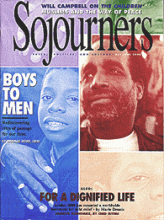RON DART’S commentary, "Beyond Clan Politics" (January-February 1998), discusses more than my own work, but permit me to focus on it alone.
He chides me for being selective in highlighting the persecution of some Christians and ignoring others. Why no mention of Palestinian Christians, or Israel, or Indonesia, or the thousands of deaths in the 1980s in El Salvador, Guatemala, and Nicaragua?
There are several reasons for this apparent lack. One is that in some cases Dart is wrong. Their Blood Cries Out does discuss Indonesia (pp. 58-60) and has an adjoining section on East Timor (pp. 60-61) that cites the death toll he alludes to.
A second is the particular focus of mine and Nina Shea’s work. Apart from illustrations for history and comparison, it is on current persecution—defined as during the 1990s. My earliest example is 1989. This is one reason why the events in the 1980s Dart describes would not be covered.
A third reason is that the book is about religious persecution understood as persecution on religious grounds, and defined as persecution which people suffer that they would not suffer if they were of a different religion. The book is not about the whole range of persecution that Christians and others suffer. Otherwise it would certainly need to include not only the examples Dart cites, but situations such as Rwanda and Burundi whose genocides are the largest example of persecution in the 1990s. It would come close to being a world survey of human rights.
My reason for saying this is not merely authorial defensiveness (though no doubt I have it in great quantity) but because I believe it can damage the people that both he and I want to aid. When people’s efforts are directed toward making sure the issue of religious persecution does not get hijacked or sidelined by partisan agendas, Dart’s claims have the danger of becoming a self-fulfilling prophecy.
Read the Full Article
